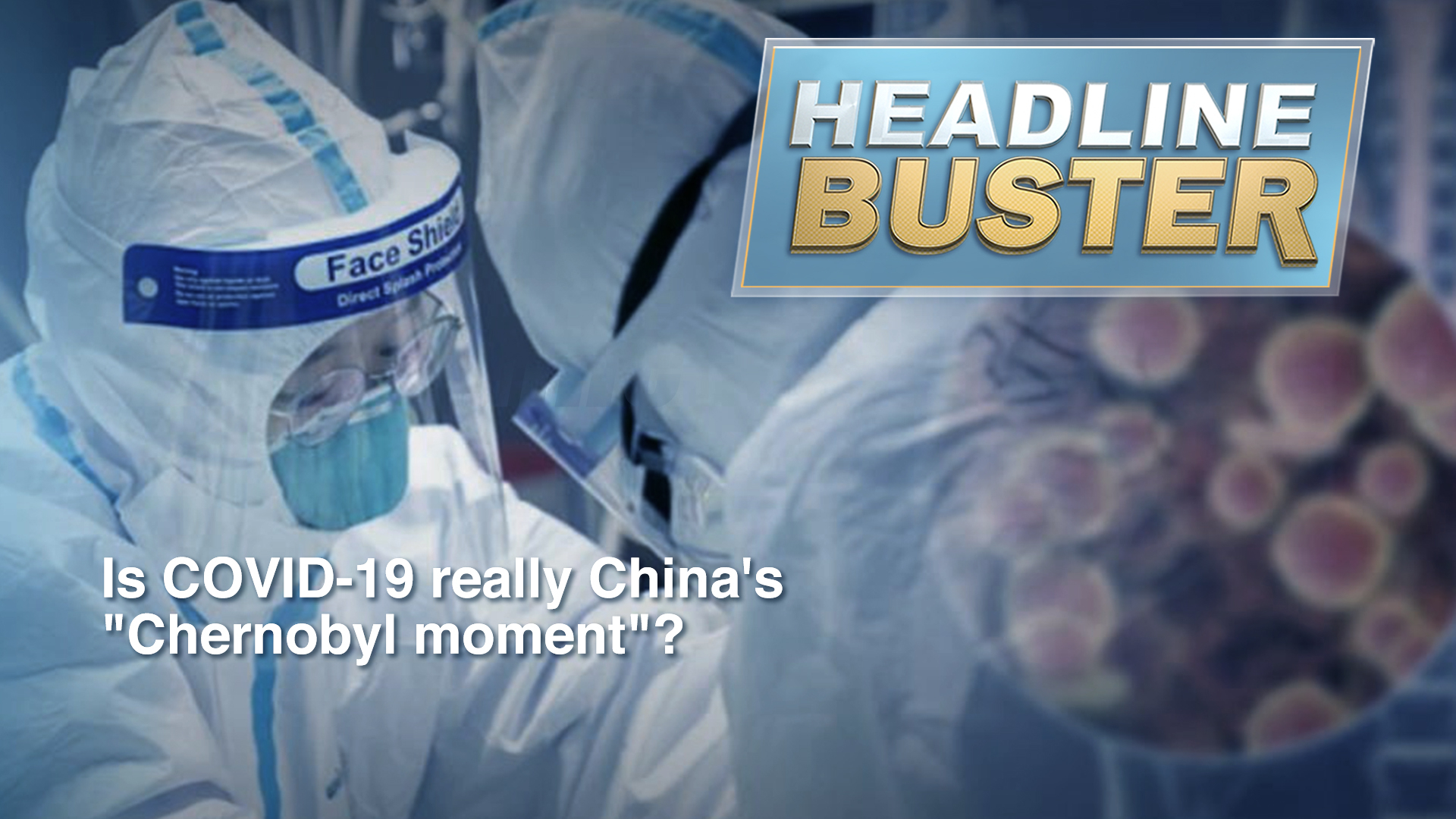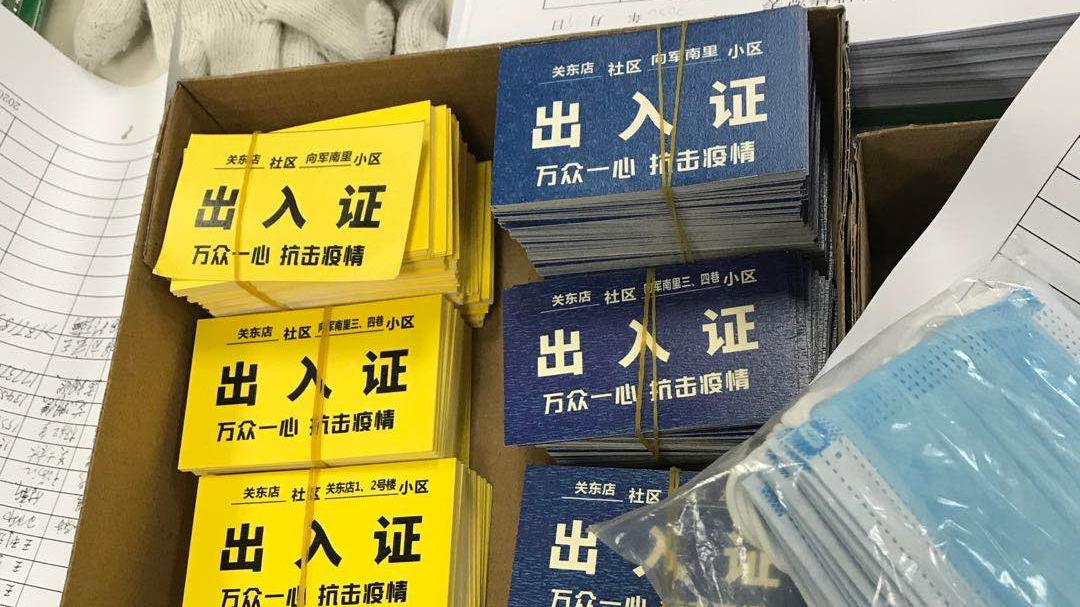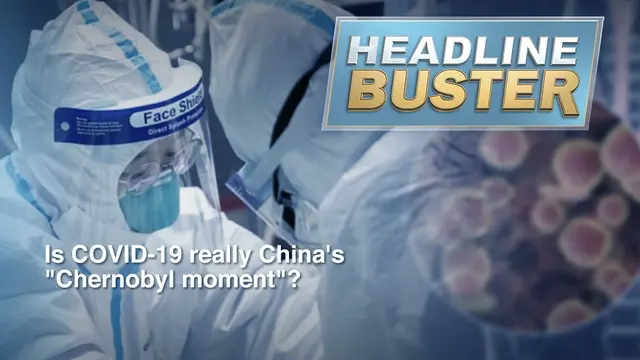11:41

Is politicizing COVID-19, the new virus spreading in the media? Are some media putting politics before people?
There's no doubt the coronavirus has gone global. Regardless of their political systems or number of cases, countries around the world are stepping up efforts to contain the further spread of the disease. Even countries that haven't been hit hard yet are rolling out prevention and control measures.
The fear is real and understandable. People want to know what they can do to keep themselves and their loved ones safe. Governments are doing what they can to spread awareness and keep people vigilant without triggering panic.
However, instead of looking at the bigger battle against a common threat, some media have decided to shift the conversation from people to politics. They're asking: is COVID-19 China's "Chernobyl moment?"
The first example even speaks to this phenomenon. The Atlantic published the opinion piece: "China's Chernobyl Never Seems to Arise" by Rory Treux on February 17.
Treux starts with: "For a cottage industry of Western experts, the fall of the Chinese Communist Party is always just one crisis away" And that: "Americans should be skeptical of any 'coming collapse of China' predictions."
Because, he argues, "the Communist Party has a well-defined playbook for handling the deadly crises that have arisen on its watch."
"Step 1: Find a local official to take the blame."
The author argues that what he calls China's "fragmented authoritarianism" allows for "easy scapegoating in times of crisis." For the coronavirus, local officials in Wuhan and Hubei have been blamed for mishandling the outbreak.
But, what's the alternative? Is the author implying that the local officials in Wuhan who did not take the appropriate measures in the crisis should stay in power?
"Step 2: Respond aggressively, even excessively."
When faced with a new virus, a crisis of unknown magnitude, should China's response been a bit more "laissez-faire" – more of a "let's hope for the best and just see what happens" approach? The world would not have liked that very much.
"Step 3: Control the narrative. In China's political-education system, citizens are taught to internalize the idea of 'struggle.'"
Working together and solving problems is exactly what a country's citizens should be doing when faced with a crisis – or even if there is no crisis. The world would not be a safer place right now if China was not unified, working hard, or solving problems.
Nobody is thrilled about this virus – not in China, not anywhere in the world. Life isn't great when you have to "struggle" and take new steps to protect yourself and others. But nobody wants this virus to spread. If promoting and encouraging people to focus on what can be done is called "controlling the narrative," so be it.

Residents are issued "entrance cards" in residential compounds, Beijing, China. /CGTN
It's amusing for "China experts" like this author to try and boil down the Party's crisis management strategy into a 3-step manual, but it's not as simple as that. China's system works not because it's using a playbook to hide problems or misguide the people.
It works because given the country's sheer size and population, the system's efficiency has proved effective in handling natural disasters and man-made problems alike. If there is a problem with the system, rest assured, it will be identified, analyzed, and improved.
Speaking of controlling the narrative, the next example comes from the New York Times, which published the piece "China Spins Coronavirus Crisis, Hailing Itself as a Global Leader" on February 28.
The article says "…as the virus spreads to 56 countries and wreaks havoc on global markets, experts say the campaign could revive concerns about China's secretive approach to managing the crisis."
"Secretive" is really a stretch. Every day, China gives real-time updates of its infection numbers for every province, every city, and every county through social media, in addition to giving daily pressers to update the world on exactly what it's doing. Really an information overload some might argue.
And these figures don't always paint a very rosy picture. It seems that no matter how much information China shares with the international community, it'll never be enough for some.
The article continues to say that China is hailing itself as "a global leader." At no point has China ever hailed itself as a global leader. The article tries to spin it this way when it says: "The government is now working to promote the idea that international experts enthusiastically endorse its approach."
And: "Memes have circulated featuring recent praise from a World Health Organization expert for China's efforts. One shows the expert and a quote from a recent news conference in which he said he would want to be treated in China if he were infected with the virus."
International experts do endorse China's approach, and anyone can see their comments. But again, it doesn't seem to matter who said what about China, as long as it's positive, there must be something suspicious about it…
There is another opinion piece published by The Australian Financial Review on March 2. Former Australian Ambassador to China, Geoff Raby writes, "Why COVID-19 is unlikely to be Xi's Chernobyl moment."
Raby gives a no-frills account of how the Chinese government has handled recent crises. Yes, China has its challenges with how it manages situations and political discussion. But that doesn't mean the government is going to collapse anytime soon.
Many outsiders seem to look at the Chinese people and the Chinese government as separate, feuding entities, when actually, they are interwoven.
Raby clears up all the confusion surrounding this irresistible Chernobyl comparison when he says, "China today is not the Soviet Union of 1986. China is a highly successful, well-functioning economy that keeps delivering ever higher material living standards to its citizens, while its international standing is built on respect. Cynicism exists, but is trumped by the Communist Party's patriotic narrative and the government's performance in delivering on people's expectations."
Like radiation, the virus is invisible but dangerous. China and Chernobyl both start with the same two letters. But let's stop trying to compare the two please. To help people understand the steps media takes to cover China stories, this playbook may help:
-
Accuse the Chinese government of doing too little or too much. No matter how much or how little they do, it's wrong.
-
Call it fake news. Always question the numbers and anything positive other countries or international organizations say about China.
-
Control the narrative. Share analysis from anyone outside China but don't use anything positive from within China.
(If you want to contribute and have specific expertise, please contact us at [email protected].)
 简体中文
简体中文

